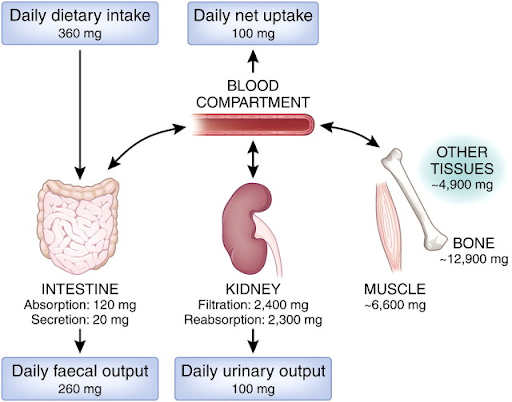The Ultimate Guide to Workplace Wellness: Tips and Strategies from B Better

In the hectic realm of corporate life, where there is always a deadline on the horizon and stress levels are always on the rise, finding a healthy work-life balance can often feel like a challenging aspiration. If you’re among the tribe of health-conscious corporate pioneers seeking the perfect synergy between professional success and personal well-being, you’ve just landed in the right place.
Welcome to “The Ultimate Guide to Workplace Wellness: Tips and Strategies from B Better!
Tip 1: How to sleep deep and wake up with energy
We all know that high-quality sleep is vital to health. But did you know that sleep is a time when the body is quite busy repairing damaged tissues, generating white blood cells for immunity, processing stress and heavy emotions? Here are some tips to improve the quality of your sleep:
- Avoid Caffeine after 2 pm: believe it or not, to break down half of the amount of caffeine in your blood it takes the body 5-6 hours! This means if you drink just one cup of coffee at 14:00 you still have 25% of the caffeine at midnight in your blood. This impacts sleep quality.
- Spend the hour before bed with relaxing activities: Are you answering emails in the evening? Watching news? Paying bills? Are you receiving a lot of (blue) light from screens or lamps? Your body understands just one thing: you need energy and it will support your choices by reducing melatonin production and producing more stress hormones to keep you awake!
- Quiet the digestion: This is a powerful tip that will surprise many people. For people with insomnia or light, restless sleep, we suggest no food at all for a full three hours before bed. When you’re digesting food during sleep, your sleep will suffer.
Tip 2: Support your immune system with the right nutrients!
To produce white blood cells, the body needs certain nutrients. We will list the 4 most important nutrients. Can you guess the number one nutrient in which a lot of people are deficient which is needed to produce white blood cells?
- Vitamin D: Having enough sun exposure seems so simple, yet this is the number one nutrient in which a lot of people are deficient. Glass blocks the UV light that is needed to start vitamin D production which happens on the skin.
- Zinc: This nutrient is necessary for a healthy immune system. The immune system is not only responsible for keeping you healthy, but it also plays a role in muscle growth if you’re working out.
- B vitamins: Especially vitamin B12 and folate (vitamin B9) play a role in healthy immune function. If you’re on a plant-based diet it is hard to get your B12 levels up without a supplement. Why? Because this vitamin is only produced in living organisms. Since yeast is also a living organism, nutritional yeast is a good plant-based source of B12 as well.
- Vitamin A: According to studies vitamin A plays a role in the production of white blood cells. Orange vegetables like sweet potatoes and carrots contain the precursor beta-carotene that the body then converts to a biologically active form of vitamin A, however… some people, due to genetic reasons, aren’t that good at converting beta-carotene. These people could eat animal sources of vitamin A like liver.
Tip 3: Feeling low on energy? Try this:
Although there are many reasons why you could feel low on energy (a simmering infection, allergies & food sensitivities, poor quality sleep, some medications like statins and beta blockers) there are some signs & symptoms that can tell you what type of lack of energy you are experiencing including what you can do about that:
- Feeling fatigued after meals? Especially if you are craving sweet foods in between meals your body might not be able to balance your blood sugars. Avoiding foods that spike blood sugar (foods that contain sugar, flour and refined carbs for example) can be a good first step. For other people, a low(er) carb diet will give back their energy and reduce cravings. Just try and find out!
- Feeling fatigued, short of breath, looking pale or having tingling sensations in your legs/arms? These are signs and symptoms that fit with anemia. Anemia is often caused by a lack of vitamin B12, folate and/or vitamin B6. An iron deficiency can also cause a different type of anemia that causes the same signs & symptoms.
- Feeling fatigued, experiencing hair loss and constipation? These can be signs & symptoms of hypothyroidism (a slow thyroid in simple words!). Although this is more complicated to advise on, the B Better platform contains a course with actionable steps that can help you find relief. It also helps to avoid pitfalls with the diagnosis since diagnosing this condition is hard and is therefore often missed.
- Feeling low on energy and experiencing muscle cramps? This can be indicative of a magnesium deficiency. Finding a magnesium supplement that is well absorbed can be tricky. Avoid the next ingredients on your supplement’s ingredient list: Magnesium oxide, Magnesium salts or simply magnesium.
Tip 4: Get enough Magnesium!!
This mineral is needed for many enzymatic processes (most websites will claim that magnesium is a cofactor needed for more than 300+ enzymatic processes, but this number is based on really old research. The number is likely much higher!). Yet a good amount of people are deficient in this mineral!
Signs & symptoms of a Magnesium deficiency
Want to know if you’re deficient in Magnesium? You might be experiencing:
- Stiff muscles. Magnesium is necessary to relax muscles. No magnesium, no possibility to relax your muscles
- Muscle cramps & twitches. Same reason! You might experience cramps in the calves, but they could be anywhere in the body including twitching eyelids.
- High Blood Pressure. Magnesium helps to widen the blood vessels by relaxing the muscular walls around the blood vessels. A deficiency takes away that ability. Check out this research if you like to learn more!
- Asthma. Did you know you need magnesium to convert vitamin D to its final biologically active form? A deficiency in magnesium as well as vitamin D are often seen in Asthma patients. Asthma attacks can get more severe with bigger deficiencies as well. Curious? This research from 2016 dives deeper into this topic.
- Irregular heartbeat. Magnesium is an important nutrient for the nervous system. On top of that, it regulates the uptake of other nutrients (like potassium and calcium) into cells. These nutrients are also important for healthy nervous system function.
- Lower ability to deal with stress and anxiety. Magnesium plays an important role in the brain. Magnesium molecules sit in certain receptors (called NMDA receptors) that get stimulated in times of stress. When magnesium is deficient in these receptors, it gets way more easily for these receptors to be activated. For the health nerds among us: here is a more technical article about Magnesium and stress.
- Osteoporosis. We learn in schools that bones are made out of calcium, but most of our magnesium gets stored in bones (see picture below – source: Magnesium Basics). A magnesium deficiency can cause weak bones directly. Remember that Magnesium also regulates calcium? A Magnesium deficiency can therefore also indirectly cause weak bones by lowering serum levels of calcium.
Since magnesium is less available in foods these days, you could be mindful of targeting food sources. Magnesium-rich foods are nuts & seeds (especially cashew nuts, almonds, chia seeds and pumpkin seeds), spinach and black beans, dark chocolate and avocados.
If you like to use a supplement to guarantee your daily intake or to overcome a deficiency, remember: make sure your supplement ingredient label does not say magnesium oxide, magnesium salts or simply magnesium.

Tip 5: Take care of your mental health!
Didn’t that sound like a no-brainer? Let’s dive deeper though! Thoughts communicate to your body if you are safe or not. When the body perceives that you might be in danger, energy gets pulled away from certain organs (for example digestive organs and the immune system) and directed to organs that you need to survive right now (for example muscles to run or fight).
Stressful thoughts can be about real situations, for example: you see a bear and need to run right now). Thoughts can be anticipated, for example: a bear escaped from the zoo and you might encounter the bear. Thoughts can be imaginary, for example, there is no bear around… but what if you encounter one?
Real, anticipated or imaginary stressful thoughts… it doesn’t matter. The body reacts the same to it and will favor the fight & flight response.
Of course, the likelihood of encountering a bear is small. But deadlines, worrying about finances or having high expectations from yourself will do the same!
This is what happens in the fight or flight response:
- Less digestive fluids. Less stomach acid will make protein break down harder (dive deeper into the topic with this study). Nutrients like iron, vitamin B12, calcium and magnesium need strong stomach acid as well. Chronic stress can deplete you of these nutrients.
- The immune system gets suppressed. Who needs the energy to fight off infections to live another day if you might not survive the next fight?
- The body prepares for rapid energy production. Blood pressure and heart rate will go up as a way to be prepared for the battle to come. Blood sugars will go up as well.
What can you do about this?
- Are you a perfectionist? Look hard into yourself. What drives this perfectionism? A fear of failing? A drive to please others? Understanding your why is the first step to addressing the stress produced by this quality.
- Adopt eating hygiene! Are you swallowing your food like a snake behind your laptop? Or are you taking the time to chew, connect with people and relax? The way you eat communicates something to your body. Taking the time to eat tells the body you prioritize it and your body will support your decision.
- Have some time in which you enjoy yourself. Have some time in your schedule for meeting friends, playing games, reading a book or other activities with one goal exactly: enjoy yourself. Put it on your calendar if it isn’t a habit. On that notice: things you find important leave a trace in your schedule. Can you find scheduled activities weekly in your calendar that you find enjoyable?
To summarize:
If health is important to you start implementing some new healthy habits.
- Make sure you get some good-quality sleep! Sleep is like a superpower that supports your health. Make sure the hours before you sleep communicate to your body that you like to sleep! Caffeine will decrease deep sleep in anyone. Reduce consumption to find out how this impacts your sleep quality.
- Feeling low on energy or find it hard to concentrate? Don’t just think it’s psychological! There are a lot of biological reasons that could make you feel tired! Common deficiencies in nutrients like vitamin D, Iron, vitamin B12 and magnesium can contribute to fatigue as well.
- Magnesium is a mineral that gives more resiliency to stress. A deficiency is common. Check if you are experiencing signs & symptoms of a magnesium deficiency.
- Mental Health influences nutrient uptake. Stress reduces the digestive fluids making it harder to absorb nutrients like protein, iron, vitamin B12, calcium and magnesium.
Want to learn more about evidence-informed health tips? Why don’t you try our free trial? Signing up is really easy, just click here! The best thing about the free trial? It’s easy and free!
Stay in good Health
Team B Better

